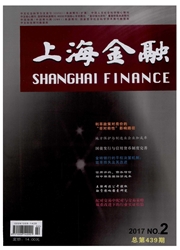

 中文摘要:
中文摘要:
劳动收入是家庭金融领域中背景风险理论的重要内容,由于国内家庭金融研究起步较晚,理论上针对劳动收入与家庭风险资产配置、股市参与的研究还很少。本文在Campbell&Viceira(2002)研究的基础上构建了引入劳动收入的居民资产配置模型,深入分析了与劳动收入相关的3个变量对居民资产配置的影响。基于中国家庭金融调查(CHFS)2011年的数据,运用Probit模型和Tobit模型实证研究发现:我国城镇家庭预期收入增长率对家庭股市参与和参与程度有显著的积极影响,家庭劳动收入的自有风险与家庭股市参与和参与程度显著地负相关,而劳动收入的协方差风险对股市参与的影响并不显著。
 英文摘要:
英文摘要:
Labor income is an important part of background risk theory in the field of family finance. Domestic research on family finance started late. Theoretical study on labor income,household assets allocation and stock market participation is rare. Based on the study of Campbell Viceira(2002),we constructed residents asset allocation model including labor income. We analyzed the impact of three variables associated with labor income on residents asset allocation. Then with the CHFS research data collected in 2011 we uesd Probit model and Tobit model to conduct the empirical study and found that urban households expectation of income growth have a significant positive impact on the stock market participation. Labor income risk has a significant negative relationship with stock market participation. The impact of labor incomes covariance risk on stock market participation is not significant.
 同期刊论文项目
同期刊论文项目
 同项目期刊论文
同项目期刊论文
 期刊信息
期刊信息
